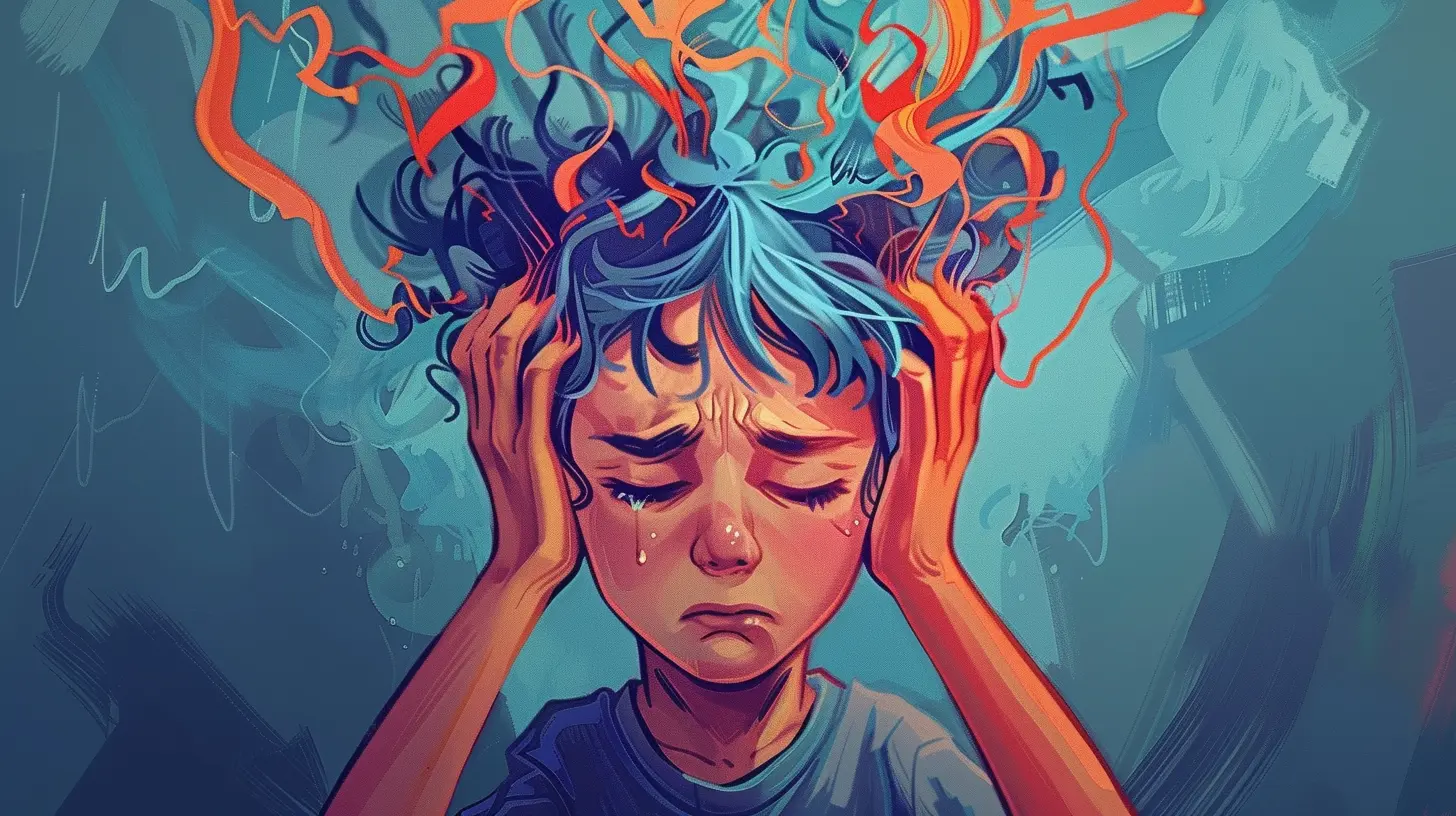Helping Your Child Navigate Peer Pressure and Stress
1 July 2025
Childhood and adolescence are some of the most formative years of a person’s life. It’s a time of growth, self-discovery, and—unfortunately—some tough challenges. Among these challenges, peer pressure and stress stand out as major hurdles that every child will face at some point.
As a parent, it’s natural to want to shield your child from these struggles, but the truth is, you can’t always be there to protect them from every difficult situation. What you can do, however, is equip them with the tools to handle peer pressure and stress in a healthy and confident way.
So, how do you help your child navigate these tricky waters? Let’s dive in. 
Understanding Peer Pressure: What Every Parent Should Know
Peer pressure is the influence that children and teenagers feel from their friends, classmates, or social circles to behave in a certain way. It can be both positive and negative—yes, you read that right!Types of Peer Pressure
1. Positive Peer Pressure- Encourages good habits (e.g., studying together, joining a sports team, making healthy choices).
- Helps children build confidence and improve themselves.
2. Negative Peer Pressure
- Pushes kids toward risky or unhealthy behaviors (e.g., skipping school, experimenting with substances, or bullying).
- Can lead to feelings of guilt, shame, or anxiety.
As children grow, their desire to fit in and feel accepted becomes stronger. This can make them more vulnerable to negative peer pressure, especially if they lack the confidence to say “no.” 
The Link Between Peer Pressure and Stress
Stress is a normal part of life, but when it’s constant and overwhelming, it can have a serious impact on a child’s mental and physical well-being.How Peer Pressure Triggers Stress
- Fear of Rejection – No child wants to feel like an outsider. The fear of losing friends can push them into making choices they’re uncomfortable with.- Performance Anxiety – Whether it’s academic competition or social status, the pressure to "be the best" can weigh heavily on young minds.
- Moral Dilemmas – When a child knows something is wrong but feels pressured to do it anyway, it creates internal conflict that leads to stress.
Understanding that peer pressure and stress go hand in hand is the first step. The next? Helping your child deal with it. 
How to Help Your Child Handle Peer Pressure
So, what can you do as a parent to support your child in the face of peer pressure? Here are some actionable strategies to help them stand strong:1. Encourage Open Conversations
Start by creating a safe space where your child feels comfortable talking about their experiences, fears, and decisions. Instead of reacting with judgment or anger, listen to them.- Ask open-ended questions like, “What do you think about that situation?” or “How did you feel when your friends said that?”
- Share your own experiences with peer pressure from when you were a child—this can make them feel less alone.
- Reassure them that it’s okay to say “no” and that true friends will respect their decisions.
2. Teach Decision-Making Skills
Equip your child with the confidence to make their own choices rather than following the crowd blindly.- Encourage them to think ahead—"What might happen if I make this choice?"
- Teach them to weigh pros and cons before making a decision.
- Role-play common peer pressure scenarios and practice different responses.
3. Build Their Self-Confidence
Children who have a strong sense of self-worth are less likely to give in to peer pressure.- Encourage them to pursue interests and hobbies that bring them joy.
- Celebrate their achievements, no matter how small.
- Help them develop positive affirmations to boost self-esteem, like:
- “I am strong enough to make my own choices.”
- “I don’t have to do something just to fit in.”
4. Teach Them How to Say "No" with Confidence
Saying “no” can be hard, especially for kids who don’t want to come off as rude or uncool. Help them practice polite but firm ways to refuse peer pressure:- Use humor: “Nah, I think I’ll pass. My mom might actually turn into a detective if I did that!”
- Blame parents: “My dad would ground me for a year if I even thought about that.”
- Offer alternatives: “I’m not into that, but let’s do this instead.”
Practicing these responses ahead of time makes them feel more natural when the moment comes.
5. Surround Them with Positive Influences
Encourage your child to choose friends who uplift them rather than pressure them into uncomfortable situations. Help them recognize the qualities of a good friend:- Respects boundaries – A real friend won’t force them to do something they don’t want to do.
- Encourages positive choices – They support them in being their best self.
- Doesn’t judge them for saying no – Friendship should never feel like an ultimatum.
If you notice your child hanging around a crowd that seems to encourage risky behavior, gently guide them towards making better social connections. 
Helping Your Child Manage Stress
Peer pressure is just one source of stress, but children can feel overwhelmed by many other things—schoolwork, friendships, family expectations, and even social media. So, how can you teach them to manage stress effectively?1. Encourage Open Communication About Stress
Just like with peer pressure, your child needs a safe space to express their stress without fear of being dismissed. When they open up:- Listen without interrupting—let them express their thoughts fully.
- Ask how you can help instead of assuming what they need.
- Validate their feelings—even if their problems seem small to you, they feel big to them.
2. Teach Healthy Coping Mechanisms
Stress is unavoidable, but dealing with it in a healthy way can make a world of difference. Encourage your child to:- Practice deep breathing exercises to calm down in stressful moments.
- Find an outlet—whether it’s journaling, painting, playing sports, or dancing, an activity they love can be a great stress reliever.
- Prioritize self-care—getting enough sleep, eating well, and exercising can all help manage stress levels.
3. Set Realistic Expectations
Children often feel stressed because they think they need to meet unrealistic expectations—whether it’s getting straight A’s or being the “perfect” friend.- Remind them that it’s okay to make mistakes.
- Encourage them to focus on progress rather than perfection.
- Let them know that your love and support aren’t based on their achievements.
4. Help Them Disconnect from Social Media
Let’s be real—social media can be a major cause of stress. The pressure to look a certain way or keep up with online trends can be overwhelming for kids and teens.- Set screen time limits to encourage breaks from social media.
- Teach them to focus on real-life experiences rather than online validation.
- Help them understand that social media often shows a filtered version of reality.
Final Thoughts
Helping your child navigate peer pressure and stress isn’t about shielding them from every challenge—it’s about giving them the tools to handle these situations with confidence.By fostering open communication, promoting self-confidence, and teaching strong decision-making skills, you can empower your child to stand firm in their values, make smart choices, and manage stress in a healthy way.
At the end of the day, your child doesn’t need a perfect life without struggles; they need a strong foundation and unconditional support to face whatever comes their way.
So, start the conversation today—your support might be exactly what they need to thrive.
all images in this post were generated using AI tools
Category:
Pediatric HealthAuthor:

Arthur McKeever
Discussion
rate this article
2 comments
Merida McGrath
This article sparks my curiosity about the best strategies for helping children cope with peer pressure. What are some effective communication techniques parents can use to foster open discussions? I'm also curious how stress manifests differently in children and what proactive steps we can take to support their emotional resilience.
November 22, 2025 at 4:19 PM

Arthur McKeever
Thank you for your insightful comment! Effective communication techniques include active listening, validating feelings, and encouraging open-ended questions. Stress can manifest as changes in behavior, mood swings, or withdrawal. To support emotional resilience, parents can model healthy coping strategies, maintain a supportive environment, and teach problem-solving skills.
Zia Acevedo
This article offers valuable insights on supporting children through peer pressure and stress. The tips are practical and relatable, making it easier for parents to guide their kids. Open communication and understanding are crucial, and this piece effectively emphasizes their importance in fostering resilience in children. Great read!
July 12, 2025 at 2:19 AM

Arthur McKeever
Thank you for your thoughtful feedback! I'm glad you found the insights and tips helpful for supporting children through these challenges. Open communication truly is key!


